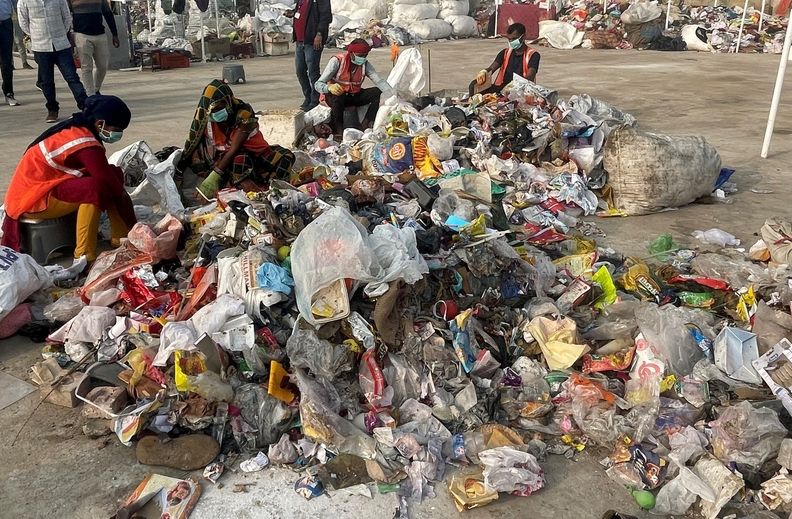The researchers argued that radically improving India’s recycling capacity will require government-finance-research-industry collaboration. Mechanical and chemical recycling will both play a role, they said, as will artificial intelligence, reverse logistics, and smaller-scale community-based solutions.
According to the roadmap, plastics recycling and sorting infrastructure has to be in place already by 2025. The academics suggest hosting a National Expo of Technologies to promote the ‘Make in India’ campaign. By 2030, recycling capacity should grow to 18.8 million tonnes and digitalisation of the flow chain of polymers should be mandatory. By 2025, recycling capacity should hit 35.2 million tonnes and digital product certification and traceability from cradle to grave should be in place. At this point, landfilled plastics should be reduced by 30% and single-use plastics phased out completely.
The authors hope the roadmap can support the Government of India and industry associations in responding to the requirements of the United Nations Global Plastics Treaty, set to come into force in 2024.
The roadmap was produced as part of an Australia-India Comprehensive Strategic Partnership involving an international team of Australian and Indian research institutes including CSIRO, the University of New South Wales, the University of Technology Sydney Institute for Sustainable Futures, The Energy and Resources Institute (TERI), the Council of Scientific and Industrial Research-National Environmental Engineering Research Institute (CSIR-NEERI) and Development Alternatives.
Source: sustainableplastics.com








